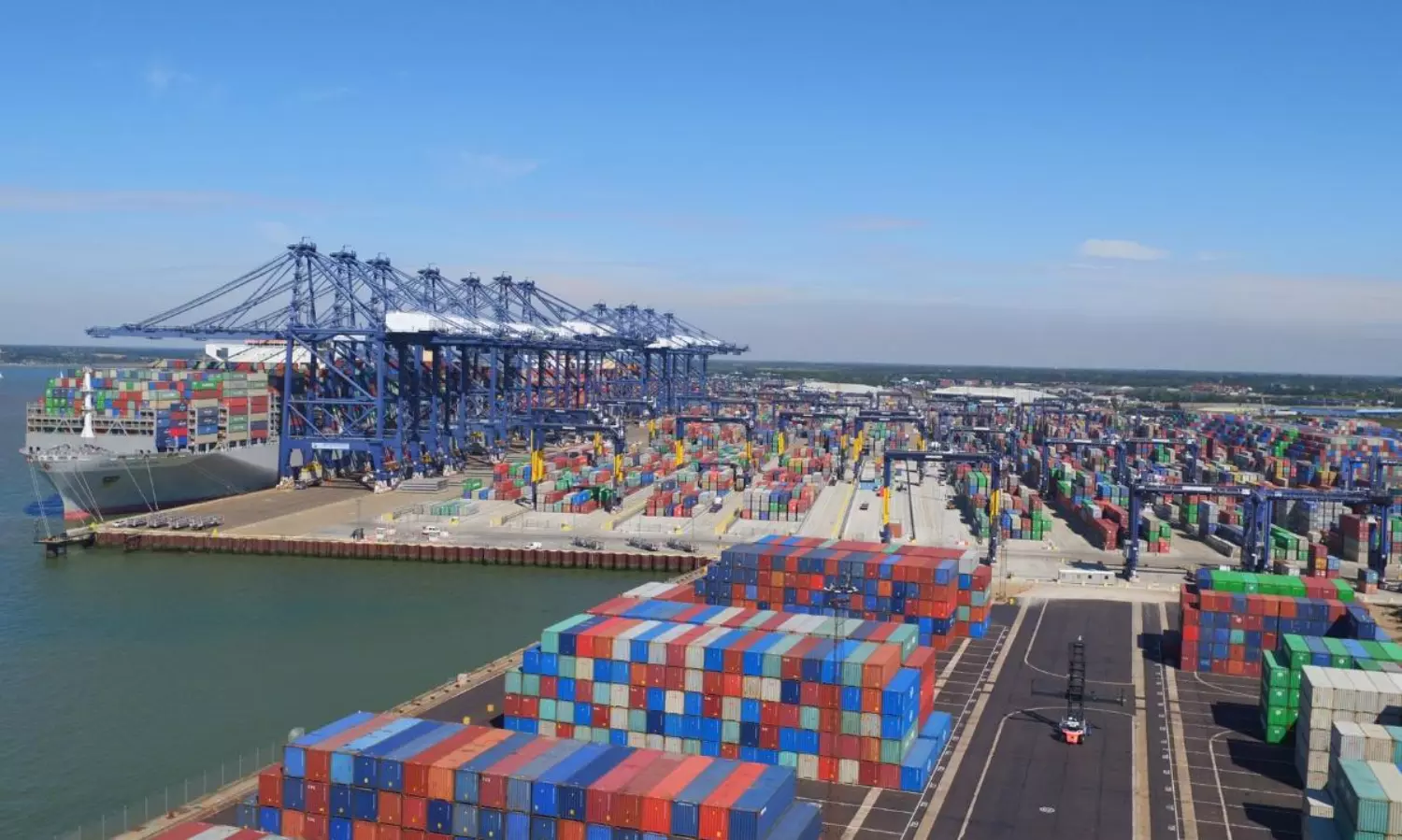Felixstowe port strike could result in $800mn lost trade: Russell
Clothing ($82.8mn) & electronic components ($32.3mn) to be impacted by the strike, says Russell Group in its analysis.

Photo Courtesy: Port of Felixstowe
The proposed strike at the port of Felixstowe could result in over $800 million in trade being disrupted according to the ALPS Marine analysis by Russell Group, a data and analytics company.
"Clothing ($82.8 million) and electronic components ($32.3 million) will be the commodities that would be impacted by the strike," says the analysis based on previous trade flows at Felixstowe in the period.
Over 1,900 members of the Unite Union will strike at the port between Sunday August 21 until Monday August 29 in a dispute about a pay increase.
Port update on strike |
"Many leading businesses are concerned about the impact that the strike will have on supply chains. It is taking significantly more time for logistics and risk management experts to plan their strategies which means they have had to throw extra resources to address shipping issues, for example, that previously were not a problem. A period of calmer waters will be welcomed by everyone throughout industry supply chains."
Beyond the U.K., Felixstowe plays a crucial role in global trade, feeding U.K. exports to larger European ports including Rotterdam ($108 million) and Hamburg ($138 million), says the update.
"The disruption at Felixstowe spells more uncertainty for businesses, consumers and governments alike," says Suki Basi, Managing Director, Russell Group. "Ports across the globe are facing congestion due to a large backlog caused by the pandemic. As our analysis has shown today, these strikes could increase the backlog and in doing so, create even more delays, and the effects of this will only be registered in the coming weeks and months."
Many experts believe that because of the disruption at Felixstowe, trade will be diverted to smaller ports in the U.K. but also other international ports including Wilhelmshaven, Germany, which has a significantly higher trade inflow than Felixstowe at this same period, at around $1 billion.
"With a potential 8-day strike looking in Felixstowe next week, the prospect of also seeing a strike in Liverpool ramps up the pressure on the UK supply chain stability even further," says container shipping expert Lars Jensen in his LinkedIn post.


